This article was co-authored by Kerry Assil, MD. Dr. Kerry Assil is a board certified Ophthalmologist and the Medical Director and CEO of Assil Eye Institute (AEI), an ophthalmology practice in Los Angeles, California. With over 25 years of experience and as one of the world's foremost experts in eye surgery, Dr. Assil has trained 14,000+ physicians in refractive and cataract surgery, performed 70,000+ eye surgeries, and authored over 100 textbooks, chapters, and articles on refractive and cataract surgery. He's served as the Distinguished Professor lecturer at Harvard, Johns Hopkins, Duke, Baylor, Tokyo, and UCLA among others. He has served on the advisory boards of 20+ ophthalmic device, pharmaceutical, and scientific companies and has appeared in the media as an authority on advances in vision-restoring surgeries and refractive surgery. Dr. Assil continues to make significant advances in his field with numerous inventions and introductions of state-of-the-art technologies.
There are 19 references cited in this article, which can be found at the bottom of the page.
wikiHow marks an article as reader-approved once it receives enough positive feedback. In this case, 84% of readers who voted found the article helpful, earning it our reader-approved status.
This article has been viewed 277,772 times.
Have you ever woken up and felt like your eyes weigh a ton? Or are your eyes tired or strained? There are some simple ways to increase alertness and soothe tired eyes. Contact an eye care or medical professional, though, if you have questions or think you may need to adjust your medication.
Steps
Soothing Your Eyes
-
1Wash your face with cold water. Splashing cold water on your face doesn’t actually wake you up directly. Instead, this initially causes constriction or narrowing of facial arteries, so you are actually decreasing the blood flow to your face. This lack of blood flow sets off a nervous system reflex to become more alert and fight to get out of this environment.
- Reduction of blood flow to the eyes reduces inflammation to the eyes.[1]
- Natural tears are produced when your eyes are closed during this period of time. With prolonged periods of being awake, eyes can become dry and tired. Strategies that increase eye closure reduce dryness and spread tear film.
- Test the water temperature before splashing. The water should be cold but not freezing.
- Splash the water at least three times to get results. Keep in mind, however, that you will only get slight relief from this method. Too few splashes may cause no change at all.
-
2Try submerging your face in bowl of cold water. Intensify your cold water wake-up by putting cold water in a bowl and putting your face into it for 30 seconds. Take a deep breath before submerging your face in the water. Take your face out of the water as soon as you need to get air.
- If any pain or other symptoms occur, stop this method immediately and contact your doctor.
Advertisement -
3Apply a cold water eye mask. To revive your eyes, give your eyes a soothing treatment. This will also give you a chance to rest your eyes by keeping them closed for a few minutes.
- Fold a small towel into the size of an eye mask that covers both eyes.
- Run cold water over this towel.
- Wring out the towel completely.
- Relax on a bed or sofa and lay the towel so that it covers both eyes.
- Take off the towel after 2-7 minutes.
- Repeat as needed.
-
4Apply a warm, wet compress. A warm compress can help relax the muscles around your eyes. This can help relieve that tired feeling. To make a simple compress, moisten a clean washcloth or a few clean paper towels with warm (but not hot) water. Lay the cloth over your eyes for a few minutes until you feel soothed.[2]
- You can also make a warm compress with a tea bag. Steep the bag in some warm water, then squeeze the excess from the tea bag. Apply the bag onto the tired eye.
-
5Try lubricating eye drops. There are several eye drop varieties that may soothe eye strain. Lubricating eye drops work by soothing tired eyes. They also add natural tear elements that hydrate eyes.[3]
- These require frequent applications. Follow the instructions on the packaging for correct use.
- If you have a chronic condition that may be contributing to tired eyes, speak with your eye doctor to acquire a correct diagnosis for your condition.
-
6Use antihistamine drops. These drops block histamine release from the body's natural defense against allergens. Many antihistamine eye drops are available over the counter.
- Antihistamine drops can cause dryness of the eyes, mouth, nose and throat.
- Follow the instructions on the packaging for correct use.
- Alaway and Zaditor are two good over-the-counter antihistamine eye drops.
-
7Use eye drops that constrict blood vessels. Eye drops such as Visine constrict blood vessels in the eyes, reducing red eyes. Some brands contain lubricating drops to help keep eye moist.[4]
- These types of eye drops can cause rebound redness. Once the drops wear off, the blood vessels may dilate more than usual, making the redness worse.
- Follow the instructions on the packaging for correct use.
-
8Ask your doctor about cyclosporine (Restasis) drops. Restasis helps chronic dry eyes due to a disease called keratoconjunctivitis sicca by stopping certain immune factors. These drops are only available by prescription, so you should talk with your doctor about whether they're right for you.[5]
- Side effects of Restasis may include burning, itching, redness, blurred vision, or sensitivity to light. It can cause an allergic reaction in some people.
- Follow the instructions on the packaging for correct use.
- Pregnant women should not use Restasis drops.
- Restasis may take up to 6 weeks (or longer, in some cases) to relieve your dry eyes.
Moving Your Eyes and Body to Wake Up
-
1Try the 20-20-20 method. Every 20 minutes, look away from your screen at any object 20 feet (6.1 m) away for 20 seconds.[6]
- Set an alarm to remind you to stretch or rest your eyes.
-
2Try watching an imaginary clock. Some exercises are designed specifically for eyes in order to strengthen various eye muscles. These exercises may soothe tired eyes. They may also stop your eyes from getting tired too quickly. Picture an imaginary clock in front of you. Find the center of the clock. Without moving your head, move eyes up toward the 12:00 hour. Then move your eyes back to the center point. Next, move eyes to the 1:00 hour and back toward the center.
- Continue this exercise for 10 times.
- This will help tired eyes focus better. It will also strengthen ciliary eye muscles, which help you focus your eyes.
-
3Write imaginary letters with your eyes. Picture letters of the alphabet on a distant wall. Without moving your head, draw these letters with your eyes.
- Imagine a horizontal figure eight or infinity sign in front of you. Trace the eight with only your eyes and don't move your head.[7]
-
4Blink more often. Train yourself to blink more often to prevent dryness. Blink once every four seconds to spread tear film and to prevent tired eyes.
-
5Get up and stretch. Sitting in front of a computer or monitor for long periods of time can cause neck and back muscles to stay tense. Without any treatment, these muscles can cause secondary soreness or stiffness of the neck, headaches, in addition to tired eyes. Stretching or meditating, specifically with eyes closed, reduce dry eyes by lubricating eyes with natural tear film. Also, the techniques relax muscles around the eyes.[8]
- Stretching increases blood flow and oxygen to tense eye muscles, allowing them to relax.
- It also de-stresses your body when paired with meditative breathing techniques.
- Stretching decreases irritability and improves mood, and soothes tired eyes.
-
6Get moderate exercise. Exercise moderately to increase heart rate. This will, in turn, increase oxygen circulation, which can increase blood flow to your eyes.
- The increased blood flow is important for functioning eye muscles and tissues around the eye.
Making a More Comfortable Environment
-
1Turn off harsh lights. Producing a comfortable environment reduces tired eyes by allowing eyes strain to focus less. Harsh or excessive lighting requires more work for your eyes to adjust to. Long exposure to bright lights causes too much stimulation for our eyes and bodies, and will result in irritability as well as overall fatigue.[9]
-
2Remove fluorescent light bulbs. Start by removing fluorescent light bulbs as well as additional light bulbs that may not be necessary to achieve suitable lighting. Change the bulbs to “soft/warm” varieties.
-
3Add dimmer switches to your lights. Install dimmer switches on your lights. This allows you to control the level of lighting, which might help relieve symptoms.
- This also provides more light choices for other family members.
-
4Adjust your computer monitor. Changes to your computer monitor may be necessary if you work for long periods of time. This will make it easier to focus your eyes. You will also strain your eyes less frequently.[10]
- Make sure your monitor is an adequate distance away. This is about 20–40 inches (51–100 cm) from your eyes. Keep your screen at eye level or slightly below eye level.
- Reduce glare by closing blinds, as sunlight may be distracting.
- Adjust your monitor so the brightest light in the room shines at a 90° angle with your monitor.
- Adjust your monitor’s brightness and contrast levels.
-
5Listen to music. Music as a whole usually puts people in better moods. Different types of music can "wake us up" in their own ways. [11]
- Try dance music. Dance music can allow you to imagine yourself dancing and enjoying yourself. As a result, you might unconsciously move to the rhythm by tapping your feet, snapping your fingers or working to the beat.
- Listen to familiar music. Soothe tired eyes by closing your eyes for a few minutes and listening to music that is familiar. This can evoke pleasant memories.
- Listen to upbeat music. Increasing mental awareness as well upbeat music with motivational lyrics can simply make you happier.
- Turn up the music. Increasing the volume slightly above your usual setting can stimulate senses to be alert.
Talking With Your Optometrist and Doctor
-
1Get regular eye exams. Keep up to date on eye exams by seeing an optometrist. She will check for signs of eye disease and other maladies.[12]
-
2Make sure your prescription eyeglasses and contacts are current. If you experience tired eyes, you may be straining your eyes with an out-of-date eyeglasses prescription. Check with your optometrist to update your prescription.
-
3Get a medical checkup. If you still experience tired eye symptoms after trying various methods, see your doctor. Even acute situations should be addressed. You may be suffering from a more complicated disease that cause tired eyes as a symptom. Speaking with a medical professional is strongly encouraged. Some possible medical conditions might include:
- Chronic Fatigue Syndrome: With this condition, a patient is constantly tired. This tiredness can cause vision problems, which may be mistaken for tired eyes. Corrective lenses do not fix the vision changes such as blurriness. Eye exams are often normal. This condition requires medical care.[13]
- Thyroid eye diseases: These can cause eye problems that may feel like tired eyes. This includes certain thyroid problems such as Graves disease, in which the body attacks its own thyroid tissue as well as eye tissue, resulting in eye swelling.[14]
- Astigmatism: With this condition, the cornea is abnormally curved, causing blurry vision.[15]
- Chronic Dry Eye Syndrome: Chronic dry eyes may be due to systematic problem such as diabetes or Sjogren's syndrome, an immune disorder that causes dry eyes and dry mouth.[16]
Changing Your Diet
-
1Eat more fruits with vitamin C. Increase your intake of lemons and oranges. The sour taste stimulates your senses and facial muscles around your eyes. The vitamin C in these fruits provide antioxidants that may prevent fatigue-causing diseases.
- Lemons and oranges can also prevent age-related eye diseases such as macular degeneration and cataracts.[17]
-
2Consume more vitamin A. Vitamin A is a crucial component of your vision. Good sources of vitamin A include liver, fish oil, milk, eggs, and leafy green vegetables.[18]
-
3Eat more leafy green vegetables. In addition to vitamin A, leafy greens such as kale and spinach contain lutein and zeaxanthin, which filters out harmful light. They also contain antioxidants and vitamin B12, which help with blood cell production. Consuming more leafy greens will also increase your body’s energy, which is needed to fight eye fatigue.
- Kale and spinach can help prevent cataracts.
-
4Increase your intake of omega 3 fatty acids. Salmon, tuna and other fish contain omega 3 fatty acids, which can prevent eye disease. They can also prevent the effects of age-related damage to eyes.
-
5Increase your zinc intake. Zinc can help prevent the damaging effects of harsh light. Increase how much zinc you get by eating more legumes, dairy, beef and chicken.[19]
Expert Q&A
Did you know you can get expert answers for this article?
Unlock expert answers by supporting wikiHow
-
QuestionIf I wanted to wake up feeling happy, how would I do that?
 Chris M. Matsko, MDDr. Chris M. Matsko is a retired physician based in Pittsburgh, Pennsylvania. With over 25 years of medical research experience, Dr. Matsko was awarded the Pittsburgh Cornell University Leadership Award for Excellence. He holds a BS in Nutritional Science from Cornell University and an MD from the Temple University School of Medicine in 2007. Dr. Matsko earned a Research Writing Certification from the American Medical Writers Association (AMWA) in 2016 and a Medical Writing & Editing Certification from the University of Chicago in 2017.
Chris M. Matsko, MDDr. Chris M. Matsko is a retired physician based in Pittsburgh, Pennsylvania. With over 25 years of medical research experience, Dr. Matsko was awarded the Pittsburgh Cornell University Leadership Award for Excellence. He holds a BS in Nutritional Science from Cornell University and an MD from the Temple University School of Medicine in 2007. Dr. Matsko earned a Research Writing Certification from the American Medical Writers Association (AMWA) in 2016 and a Medical Writing & Editing Certification from the University of Chicago in 2017.
Family Medicine Physician
-
QuestionHow do you fix tired eyes in the morning?
 Kerry Assil, MDDr. Kerry Assil is a board certified Ophthalmologist and the Medical Director and CEO of Assil Eye Institute (AEI), an ophthalmology practice in Los Angeles, California. With over 25 years of experience and as one of the world's foremost experts in eye surgery, Dr. Assil has trained 14,000+ physicians in refractive and cataract surgery, performed 70,000+ eye surgeries, and authored over 100 textbooks, chapters, and articles on refractive and cataract surgery. He's served as the Distinguished Professor lecturer at Harvard, Johns Hopkins, Duke, Baylor, Tokyo, and UCLA among others. He has served on the advisory boards of 20+ ophthalmic device, pharmaceutical, and scientific companies and has appeared in the media as an authority on advances in vision-restoring surgeries and refractive surgery. Dr. Assil continues to make significant advances in his field with numerous inventions and introductions of state-of-the-art technologies.
Kerry Assil, MDDr. Kerry Assil is a board certified Ophthalmologist and the Medical Director and CEO of Assil Eye Institute (AEI), an ophthalmology practice in Los Angeles, California. With over 25 years of experience and as one of the world's foremost experts in eye surgery, Dr. Assil has trained 14,000+ physicians in refractive and cataract surgery, performed 70,000+ eye surgeries, and authored over 100 textbooks, chapters, and articles on refractive and cataract surgery. He's served as the Distinguished Professor lecturer at Harvard, Johns Hopkins, Duke, Baylor, Tokyo, and UCLA among others. He has served on the advisory boards of 20+ ophthalmic device, pharmaceutical, and scientific companies and has appeared in the media as an authority on advances in vision-restoring surgeries and refractive surgery. Dr. Assil continues to make significant advances in his field with numerous inventions and introductions of state-of-the-art technologies.
Board Certified Ophthalmologist If your eyes feel tired and sticky when you wake up, it could be dehydration, especially if you cut back on fluids in the evening so you don't wake up in the middle of the night to go to the bathroom. Try yawning a few times before you open your eyes, which will create a few reflex tears. Then, drink a lot of water as soon as you get up.
If your eyes feel tired and sticky when you wake up, it could be dehydration, especially if you cut back on fluids in the evening so you don't wake up in the middle of the night to go to the bathroom. Try yawning a few times before you open your eyes, which will create a few reflex tears. Then, drink a lot of water as soon as you get up.
References
- ↑ https://www.uofmhealth.org/health-library/tw4354spec
- ↑ https://www.sjogrens.org/sites/default/files/inline-files/Dry%20Eye%20Patient%20Education%20Sheet.pdf
- ↑ https://www.aao.org/eye-health/treatments/lubricating-eye-drops
- ↑ https://www.drugs.com/mtm/visine.html
- ↑ https://www.drugs.com/mtm/cyclosporine-ophthalmic.html
- ↑ https://www.aoa.org/healthy-eyes/eye-and-vision-conditions/computer-vision-syndrome?sso=y
- ↑ https://winyatesopticians.co.uk/2018/06/eye-exercises/
- ↑ https://www.betterhealth.vic.gov.au/health/healthyliving/computer-related-injuries
- ↑ https://www.urmc.rochester.edu/encyclopedia/content.aspx?contenttypeid=85&contentid=P00516
- ↑ https://www.urmc.rochester.edu/encyclopedia/content.aspx?contenttypeid=85&contentid=P00516
- ↑ https://www.psychologytoday.com/blog/the-athletes-way/201212/the-neuroscience-music-mindset-and-motivation
- ↑ https://www.cdc.gov/visionhealth/resources/features/keep-eye-on-vision-health.html
- ↑ https://www.nhs.uk/conditions/chronic-fatigue-syndrome-cfs/
- ↑ https://www.btf-thyroid.org/thyroid-eye-disease-leaflet
- ↑ https://www.aao.org/eye-health/diseases/what-is-astigmatism
- ↑ https://medlineplus.gov/sjogrenssyndrome.html
- ↑ https://www.aoa.org/healthy-eyes/caring-for-your-eyes/diet-and-nutrition?sso=y
- ↑ https://ods.od.nih.gov/factsheets/VitaminA-HealthProfessional/
- ↑ https://efsa.onlinelibrary.wiley.com/doi/epdf/10.2903/j.efsa.2009.1229
- ↑ Kerry Assil, MD. Board Certified Ophthalmologist. Expert Interview. 4 September 2020.
- ↑ Kerry Assil, MD. Board Certified Ophthalmologist. Expert Interview. 4 September 2020.
About This Article
To soothe tired eyes and wake up, try washing your face with cold water, which can reduce swelling in your eyes and make you more alert. You can also get the same effect by running cold water over a towel and lying down with it over your eyes. Also, try blinking a few times and tracing imaginary letters with your eyes, which can help soothe them. If you have eye drops on hand, use them right after you wake up to feel refreshed. For more advice from our Medical co-author, like how to soothe tired eyes through diet, scroll down!

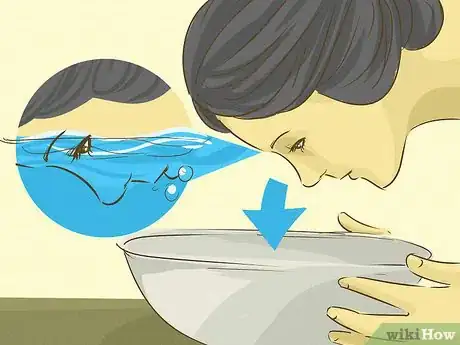
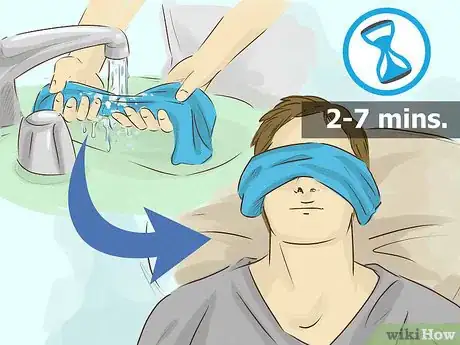
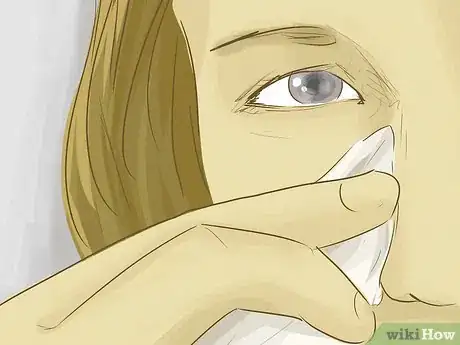
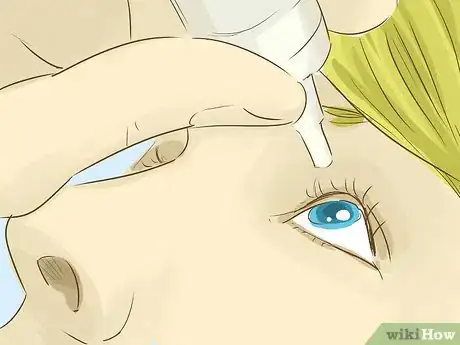
-Step-5-Version-3.webp)
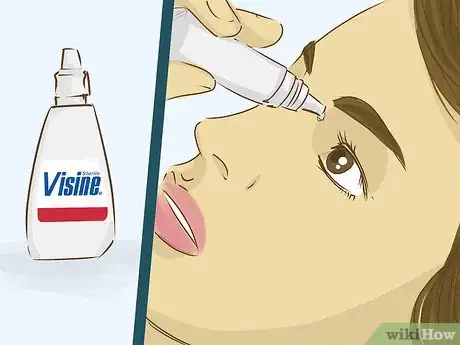
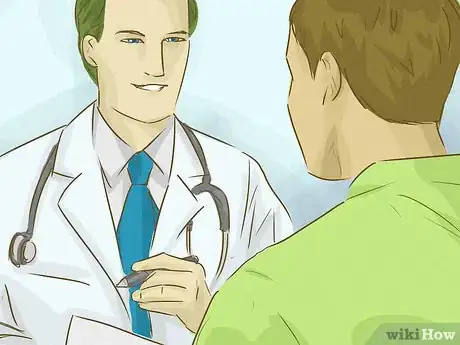
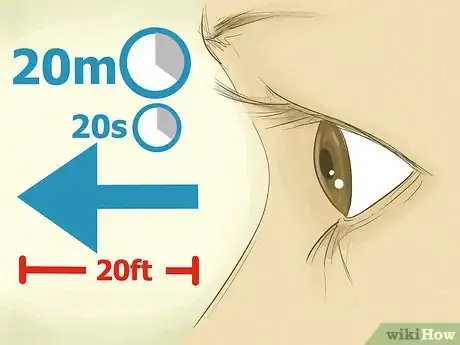
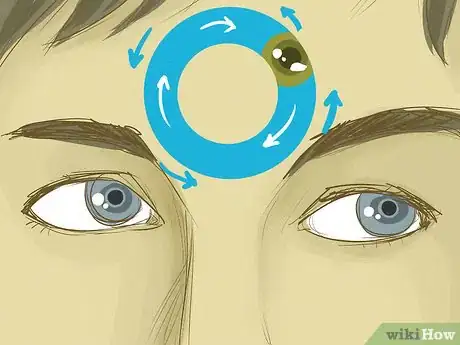
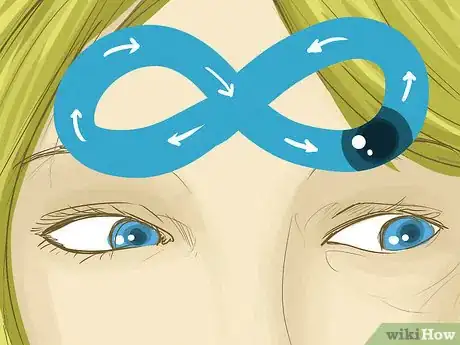
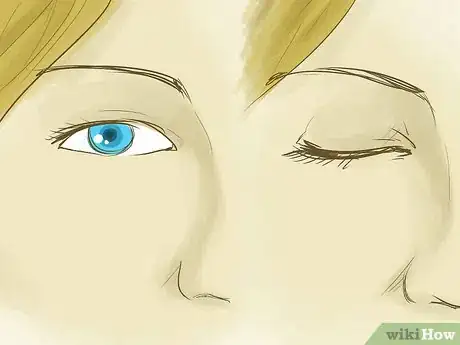
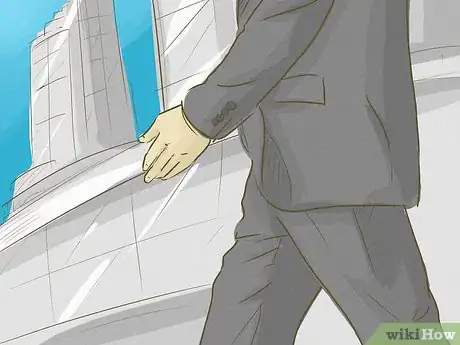
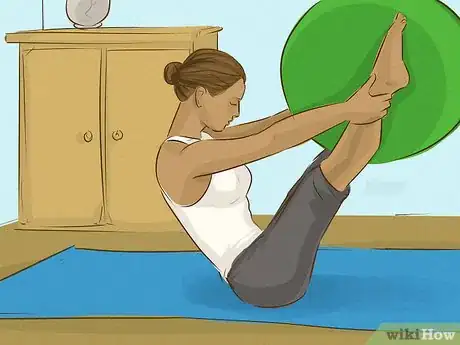
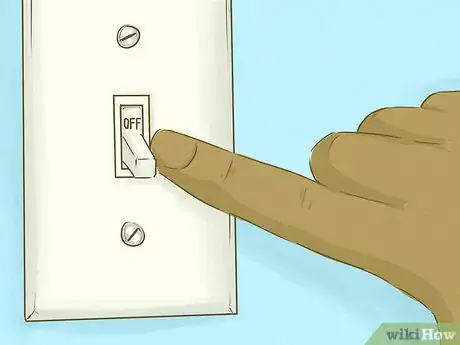
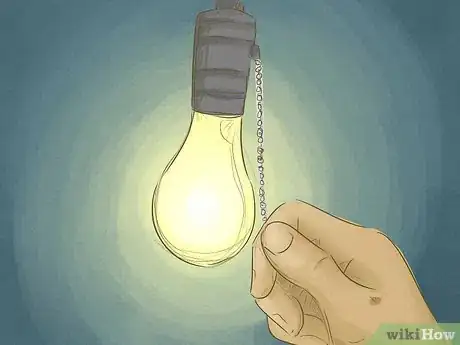
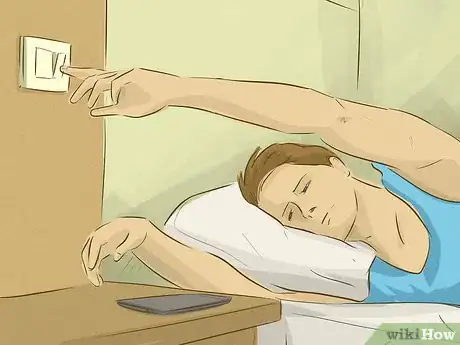


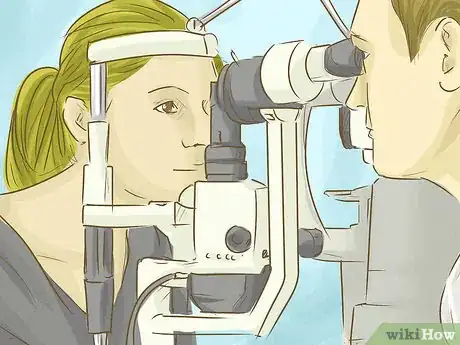
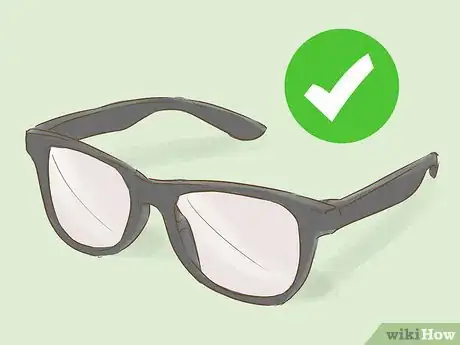
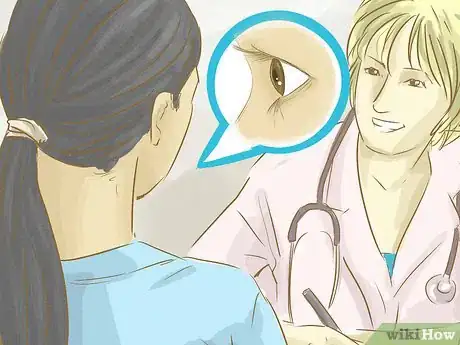




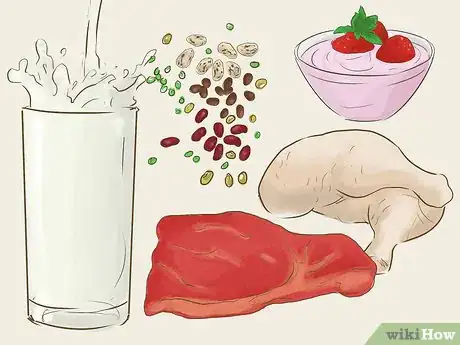
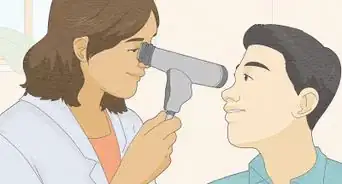

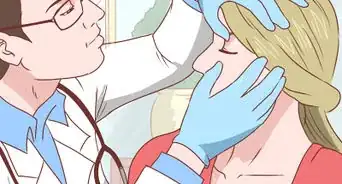


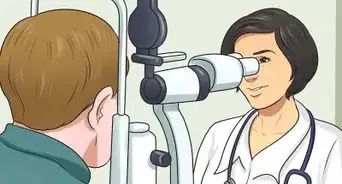


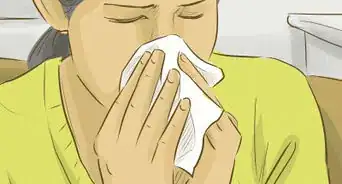












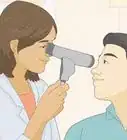






































Medical Disclaimer
The content of this article is not intended to be a substitute for professional medical advice, examination, diagnosis, or treatment. You should always contact your doctor or other qualified healthcare professional before starting, changing, or stopping any kind of health treatment.
Read More...